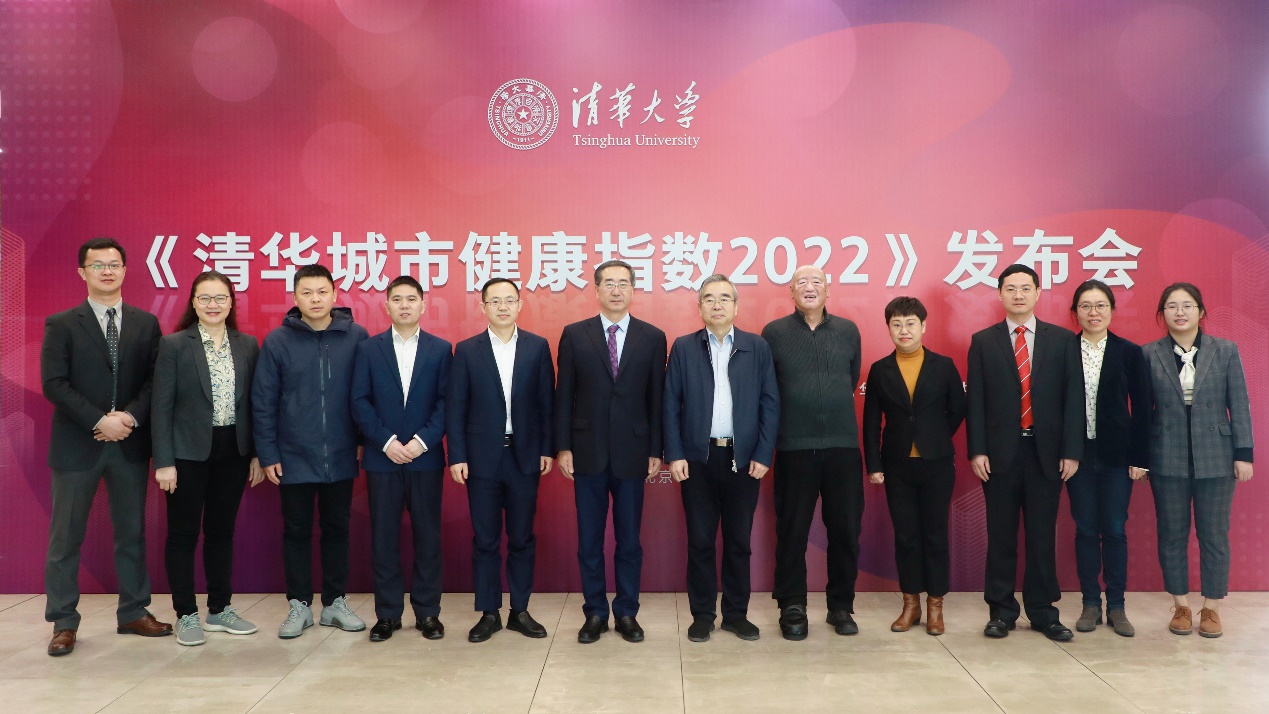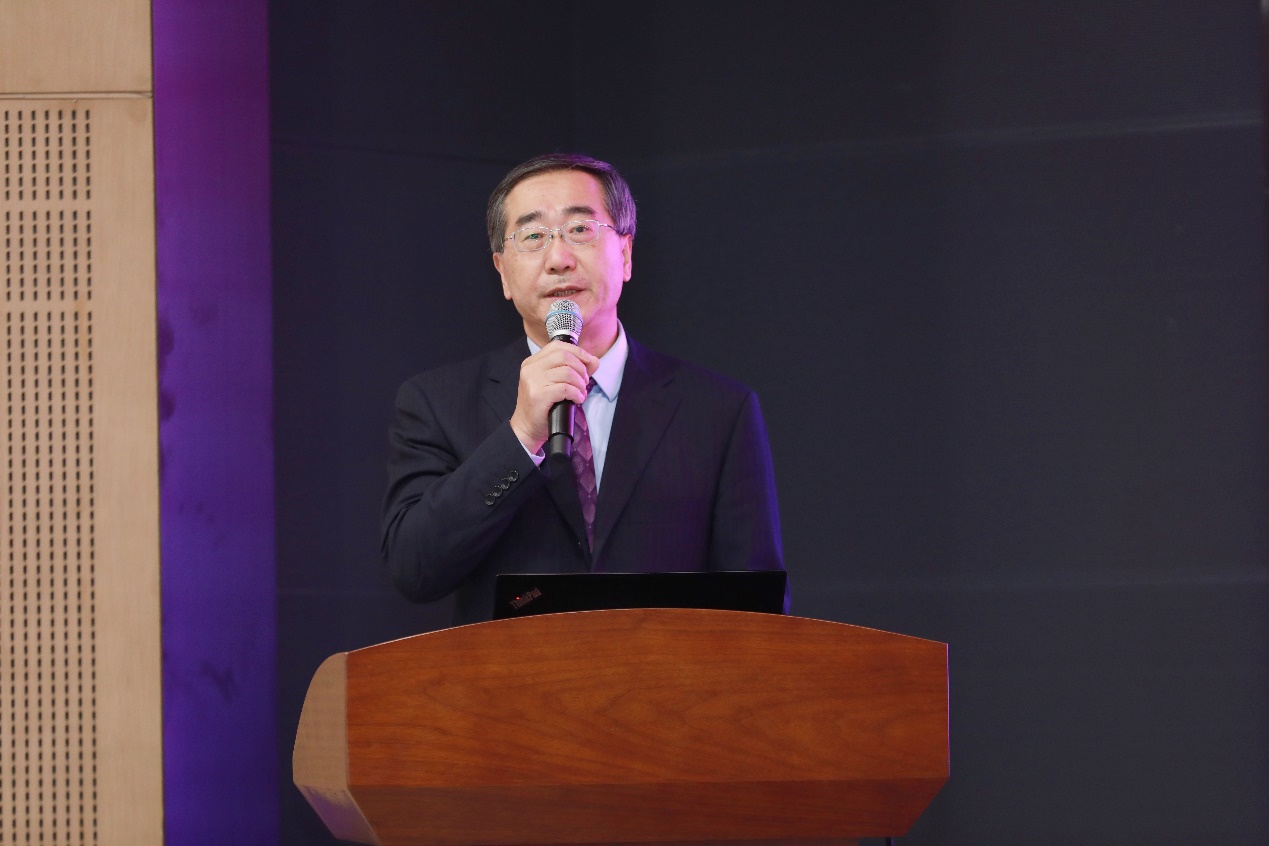The launch event of “Tsinghua Urban Health Index (TUHI) 2022” was held in February, jointly hosted by the Vanke School of Public Health, the Institute for China Sustainable Urbanization, and the Institute for Healthy China of Tsinghua University.

Tsinghua Urban Health Index (TUHI) is an ongoing third-party evaluation project on city health levels in response to the “Healthy China 2030” strategy and the “Healthy China Initiative”. Since the project was launched in March 2020, TUHI has published a number of reports on findings for three consecutive years. With spatiotemporal big data mining technology, the team has successfully completed a “health portrait” of modern Chinese cities, which has won high recognition and widespread attention from all sectors of society. In 2022, the research team further optimised the measurement methodology and expanded various data sources to complete “TUHI 2022” for the new year, which for the first time achieved full coverage of 296 cities above prefecture level in China, devoting Tsinghua’s insight to the promotion of the concerted construction and governance of people’s cities.
The launch was attended by Mao Qun'an, Deputy Director of the Healthy China Initiative Promotion Office, Director General of the Planning Division of the National Health Commission and Deputy Director of the National Patriotic Health Campaign Office, Jiang Shengyao, Deputy Director of the Tsinghua University Council and Dean of the Institute for China Sustainable Urbanization, Tsinghua University, Tang Weimin, Director of the Patriotic Health Campaign Office of Beijing Municipal Health Commission, Huang Hui, Deputy Director of Chengdu Municipal Health Commission, Yang Xin, Director of the Patriotic Health Campaign Office of Chengdu Municipal Health Commission, Yin Zhi, Executive Vice President of the Institute for China Sustainable Urbanization, Tsinghua University, and Wang Kaibo, Deputy Dean and Head of the Party Working Group of the Vanke School of Public Health, Tsinghua University. The host was Huang Cunrui, tenured professor at the Vanke School of Public Health, Tsinghua University.

Jiang Shengyao said that the report of the 20th National Congress of the CPC has made “Healthy China” an important aspect of China’s overall development goal for 2035, and it is timely to promote the construction of healthy cities with the concept of “whole life cycle management”. In the new journey of promoting Chinese modernization, as the main battleground of “people’s health”, cities’ sustainable development has constantly been taking new implications and values, which requires us to promote scientific research and innovation in the field of urban health from a strategic overall perspective. Based on multi-source big data, TUHI has constructed a measurable, comparable and implementable scale for urban health evaluation. This is not only a challenging practical task, but also a forward-looking and cross-disciplinary issue. The project outcomes can facilitate governments at all levels in terms of health issues to judge the development trend, shape their unique strengths and improve the effectiveness of governance, and provide intellectual support for Chinese input of healthy city construction.
At the launch event, Dr. Li Dong, Senior Research Specialist at the Institute for China Sustainable Urbanization, Tsinghua University, presented the findings of TUHI 2022. It is reported that this presentation introduces a comprehensive evaluation of the health level of Chinese cities based on data from 2021.
Two major optimisations have been made to the index based on project findings. Firstly, the index system was improved in response to the demands of governments at all levels. It has Health Products upgraded to a first-tier index and now comprises six major evaluation sections (first-tier indexes) of Health Services, Health Products, Health Actions, Health Installations, Health Environment and Health Results, with 17 evaluation areas (second-tier indexes) and 39 evaluation items (third-tier indexes). Secondly, city samples and data scope were expanded. Except for Hong Kong, Macao and Taiwan and Sansha City, we have completed the in-depth analysis of data from 296 cities above prefectural level nationwide, of which multi-source social data accounts for 75%. The volume of data is richer, covering 600,000 pieces of health industry chain data, 1 billion pieces of exercise behaviour data and 300 trillion pieces of health consumption data, etc.
Meanwhile, TUHI adopts a tournament-based evaluation method that emphasises relative rather than absolute performance and pursues no best but better. The evaluation results are interpreted separately after dividing cities into large city groups and small and medium city groups based on the population size of urban areas, to promote “one city, one policy” and “city-by-city” customized and differentiated urban health development.
TUHI 2022 project has found that, in terms of the general trend, the national urban health level has been steadily improving; the urban health level of the small and medium-sized city group is growing faster and its gap with that of the large city group is gradually decreasing. In terms of the major cities, Beijing, Shanghai, Hangzhou, Nanjing and Shenzhen of the large city group are leading the country; Huzhou, Quzhou, Weihai, Huangshan and Benxi of the small and medium-sized city group rank in the top five; in terms of major regions, Pearl River Delta and the Yangtze River Delta cities has significantly advantaged health levels. From the perspective of industrial characteristics, the development of the big health industry is bucking the trend. As for health installations, the "last mile" for urban residents to access health services still needs to be solved.
In addition, to create a high-level open research platform, TUHI will soon be launched on the website to visually present cross-city, cross-year, cross-region and multi-faceted analysis of the index results.
In the city rankings of TUHI 2022, Beijing is ranked first in China and Chengdu first in the western region. The launch event invited Tang Weimin, Director of the Patriotic Health Campaign Office of Beijing Municipal Health Commission, and Huang Hui, Deputy Director of Chengdu Municipal Health Commission, to share the significant achievements and typical experiences of the two cities in urban health development.
Editor: Li Han

